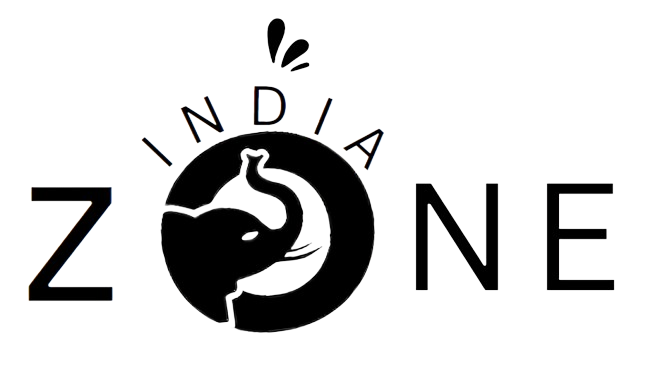
Sara Ali Khan is a rising star in the Bollywood industry who has captured the attention of the audience with her genuine and unguarded off-screen attitude in addition to her film appearances in “Murder Mubarak” and “Ae Watan Mere Watan.” Her initial journey into the spotlight, costarring with her father, Saif Ali Khan, on the well-liked TV program “Koffee with Karan,” distinguished her as an industry player prior to her official film debut. Sara’s initial public appearance served as a precursor to her eventual nuanced and genuine public persona, facilitating her engagement with a wider range of people.
But as Sara’s career developed, a fascinating contrast surfaced between her colorful, raw social media persona and the decisions she made in her professional acting career. Her social media accounts developed into a direct and intimate communication channel where she interacted with her fans, frequently sharing an approachable, impulsive, and youthfully exuberant side of herself. This showed a conscious break from her real-life character, in sharp contrast to the more somber, intricate, and occasionally “cerebral” parts she decided to pursue on screen.
Nobody missed the contrast between Sara’s personal and professional lives. It brought to light an increasing conflict between the genuineness she exuded in her social interactions and the varied, frequently difficult roles she played in her movies. This conflict between her two selves revealed Sara’s range of aspirations as an actor, highlighting her willingness to go further into her profession by accepting parts that challenged the boundaries of her off-screen character.
Viewing Sara’s experience in the entertainment industry through an interesting lens is made possible by the divergence between her personal and professional personalities. In the digital age, fans greatly value a sense of connection and accessibility, which is why her social media presence gives them a peek into the person behind the persona. However, the films she chooses show her dedication to developing as an artist and her readiness to use her performances to negotiate the intricacies of the human experience.
The contrast between Sara’s raw personality and her more intellectual film parts points to a purposeful investigation of the conflict that frequently befalls artists: the need to be true to oneself while simultaneously attempting to live other people’s lives via acting.
Sara’s experience highlights the difficulties and possibilities associated with negotiating popularity in the contemporary world, where public personalities are expected to strike a balance between their personal genuineness and their professional adaptability. Her experience demonstrates how stardom is a dynamic process where an artist’s career revolves around the relationship between their personal identity and their professional decisions.
Sara Ali Khan discussed the difficulties she has had maintaining her public image in the face of social media’s constant change and public expectations in an intimate interview with Film Companion. Sara’s open admission of the contradiction between her “unadulterated” self and the contradictory personas she presents in interviews and on social media illuminates the inner turmoil that frequently accompanies public life, particularly in the entertainment sector.
Sara thought back to her early interactions with the public and media, which were honest and straightforward. This established a standard of authenticity that she found difficult to uphold as her career developed. Her early candor gave the audience a genuine, unvarnished look into her nature, and this really struck a chord. But as she investigated other aspects of her identity—both personally and professionally—her representation shifted, leaving her admirers perplexed and feeling cut off.
Any attempt by the actress to stray from her true self was scrutinized, she admitted, because those who were used to her candor could easily spot departures from the heart. It was precisely because of the sincere rapport she had built up so quickly that she became vulnerable to comparison. Through her reflection, Sara demonstrates a deep knowledge of the interaction that exists between public people and their audience. This dynamic is based on the expectation of authenticity, but it gets more complex when those in the spotlight want to change or evolve.
Sara describes herself as feeling “very empty” and “let down by herself,” and her statements speak to the burden of internalizing public scrutiny and self-expectation. This statement emphasizes the emotional cost that public people bear when they strive for authenticity, especially at a time when social media makes it harder to distinguish between one’s private and public lives. Her story highlights a larger issue that celebrities deal with: the need to stay true to who they are while also changing and adapting to the demands of public perception and celebrity.
Sara provides a moving window into the inner workings of celebrity psychology by her open discussion of her sentiments of self-disappointment and emptiness. It emphasizes the value of self-compassion and the understanding that mistakes, development, and even transformation are essential aspects of the human experience. Her trip serves as a reminder to public people and their audiences of the difficulties associated with identity and self-presentation in the digital age. It also encourages contemplation on the nature of authenticity, the demands of public life, and the fortitude required to confront and disclose one’s vulnerabilities.
Sara Ali Khan provides an insightful glimpse into the challenges and reality of living in the spotlight through her reflective discussion about her experiences and emotional journeys in the spotlight. Her candor about experiencing emotions of sadness and emptiness not only makes her seem more relatable, but it also draws attention to the psychological and emotional aspects of celebrity life that are frequently disregarded.
Sara’s openness highlights the value of self-compassion by acknowledging that the road to personal development and public identity is paved with mistakes, setbacks, and—most importantly—transformational chances. Her story is a moving reminder of the challenges associated with navigating identity and self-presentation in a time where digital communication predominates.
Sara describes a change in her perspective on self-expression and decision-making as a result of her experience since the release of her first movie, “Kedarnath” in 2018. She was initially driven by an unfiltered, instinctive honesty, but as time went on, she noticed that deliberate factors began to have a greater influence on her decisions—a shift from spontaneous, gut-driven behavior to a more deliberate, thought-driven one.
Sara’s assessment that her actions and choices started to be more influenced by her thoughts than by her emotions highlights a serious internal conflict. It draws attention to the difficulty of balancing being true to oneself in the spotlight with adjusting to the demands and pressures that come with being a celebrity. This shift in her approach to self-presentation highlights the delicate balance that public figures have to maintain between their innate honesty and the strategic self-awareness required by their professions.
Sara’s discovery that she had unintentionally let her mental processes eclipse her intuitive insights highlights a larger psychological theme: the conflict between emotion and reason, and the particular difficulties this conflict presents for people who are constantly scrutinized by the public. A crucial teaching moment is captured by her open admission that she lost touch with her intuition and became unduly dependent on reason to the point where she felt cut off from her own experiences. It is a useful reminder of the need to strike a balance between thought and emotion, knowledge and instinct, particularly in situations when relatability and authenticity are crucial.
Her journey, which was characterized by periods of reflection and recalibration, serves as an example of the continuous process of self-discovery and the necessity of striking a balance between various facets of one’s identity. In order to present a character that is both real and appealing to the public, prominent personalities like Sara must constantly assess and modify who they are in order to stay on the path to authenticity. Sara Ali Khan’s observations offer an engaging case study on the dynamics of celebrity psychology. They remind us of the human depth hidden beneath the public persona and offer insights into the ongoing struggle between maintaining one’s authenticity and projecting a well-curated self.










